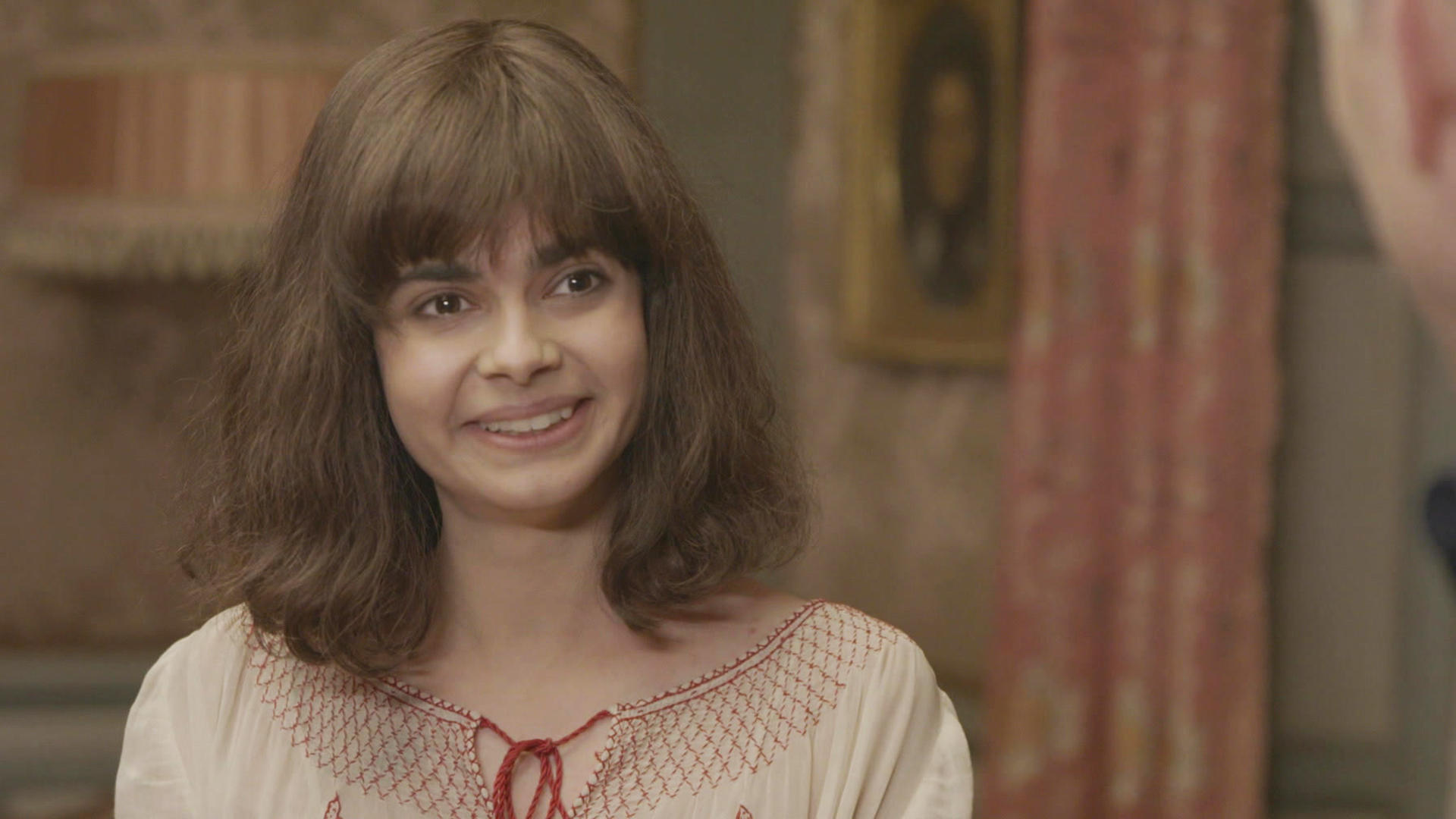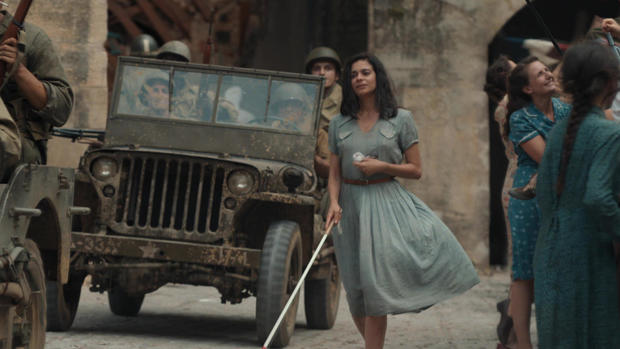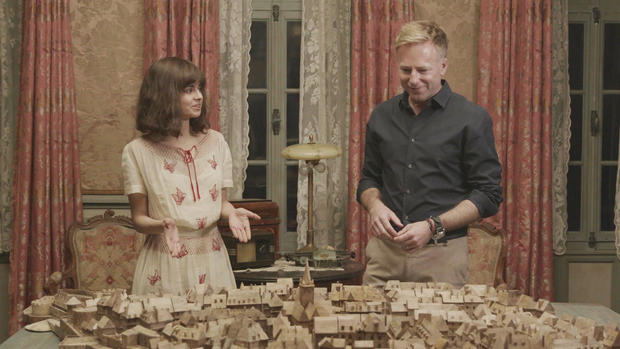▶ Watch Video: Aria Mia Loberti on starring in “All the Light We Cannot See”
She had never acted before, but Aria Mia Loberti recorded a simple audition video after hearing about a Netflix casting call. The part was for the heroine in an adaptation of the Pulitzer Prize-winning novel by Anthony Doerr, “All the Light We Cannot See.” Loberti, like the main character, Marie-Laure LeBlanc, is blind.
“Early on, I was open to any kind of casting,” said director Shawn Levy, acclaimed for the hit Netflix series “Stranger Things.” “But I had this gnawing suspicion that the right way to do this and the best way to do this was to do it with an actress, or a non-actress who is new to acting, but who brought the experience that Marie, the character, lives with. And that meant a low-vision or blind candidate. And we saw hundreds and hundreds, and Aria rose to the top.”
In the epic drama set in World War II, which debuts next month, parallel stories unfold and converge: There’s Werner, an orphaned German boy forced to join the Hitler youth; and Loberti’s role, Marie-Laure, the protagonist, a young French woman who lost her sight as a girl. It’s a story of resilience and the power of kindness in the most unlikely circumstances. We witness the tender relationship with her father (played by Mark Ruffalo), and the intensity of war, all from the perspective of a person who is blind.
Doane asked Loberti, “You’ve gone from not acting at all, to all of a sudden being on the set of this series with veteran actors, director?”
“I was just sort of pulled out of school!” she replied. “And I am so privileged and so lucky and so grateful to be able to do this.”
The Rhode Island native told us, when she was younger, she did not think there was a place for a disabled woman like her on screen. So, she veered toward academics, becoming a Fulbright scholar studying language and history. At least, until that casting call came, giving her a chance to bring her lived experience to this role.
“I’m immersing you as the audience into a culture and a mindset in which I live,” she said. “It’s a lifestyle. It’s not choreography.”
“But isn’t acting acting?” asked Doane. “Don’t actors inhabit other people’s lives?”
“Yes, actors are actors, and everyone, I believe, should have the opportunity to step into someone else’s shoes,” Loberti said. “But there are countless disabled actors, countless blind actresses. I think we need to make the opportunities for fair and equal jobs, in this industry and beyond, and to tell the stories authentically.”
The newbie actor seemed at ease on set when we met during filming in Budapest, Hungary last year. She and her service dog, Ingrid, showed “Sunday Morning” the attic where Marie-Laure’s reclusive uncle (played by Hugh Laurie) transmits radio broadcasts during the war. “Ingrid would show me the edge of the carpet, so I didn’t trip,” Loberti said.
Going on set is like stepping into the book. In the tale, Marie-Laure’s father builds her a model city so she could learn to navigate their neighborhood. “I’m a 21st century kid, so my version of this is a talking iPhone with GPS!” she smiled.
Loberti worked to bridge her life experiences with those of a character from another era, getting help from associate producer Joe Strechay, who himself was legally blind at age 19 and, later, totally blind. “I didn’t see myself in media often, like cool and bad ass like Marie is!” Strechay said. “And I wanted to help make that happen.”
Strechay is a Netflix consultant who makes sure portrayals of blind or low-vision characters are captured in an honest, sensitive way: “Like one scene, I suggested that a character that’s interacting with Marie would nod their head yes without saying yes, and realize that the character Marie couldn’t see that, and then have to respond to it.”
Doane asked director Shawn Levy what changes in performances: “Like, instead of the cliche of, Oh, I’m playing a low-vision or blind character so I’m going to willfully avoid eye contact with you, the reality is that Aria, like many blind people, has grown up learning to look above the voice, look above the sound.”
“How has your process changed in working with Aria?”
“Frankly, I remember the first time I met Aria; that was the first time I realized that I don’t know that I’ve spent any significant time with a blind person,” Levy said. “And I realized that, wow, so many of us have a limited depth of experience with many disabilities.”
Levy had read the book, and said it’s a challenge to turn, in his words, an epic novel into a film. But a four-part series gave him the time. Loberti told us she, too, loved this book when it was published, and today sees this role as much more than just a character in a film: “I feel the weight of every single blind girl especially, every member of the blind community, but also the millions of people who probably have never met a blind person,” she said. “And this will be the first time they’ve ever met someone like me. And to be the introduction, it’s scary, but it’s wonderful.”
To watch a trailer for “All the Light We Cannot See,” click on the video player below:
For more info:
- “All the Light We Cannot See” debuts on Netflix November 2
- Aria Mia Loberti on Instagram
- Joe Strechay
Story produced by Mikaela Bufano. Editor: Remington Korper.





































